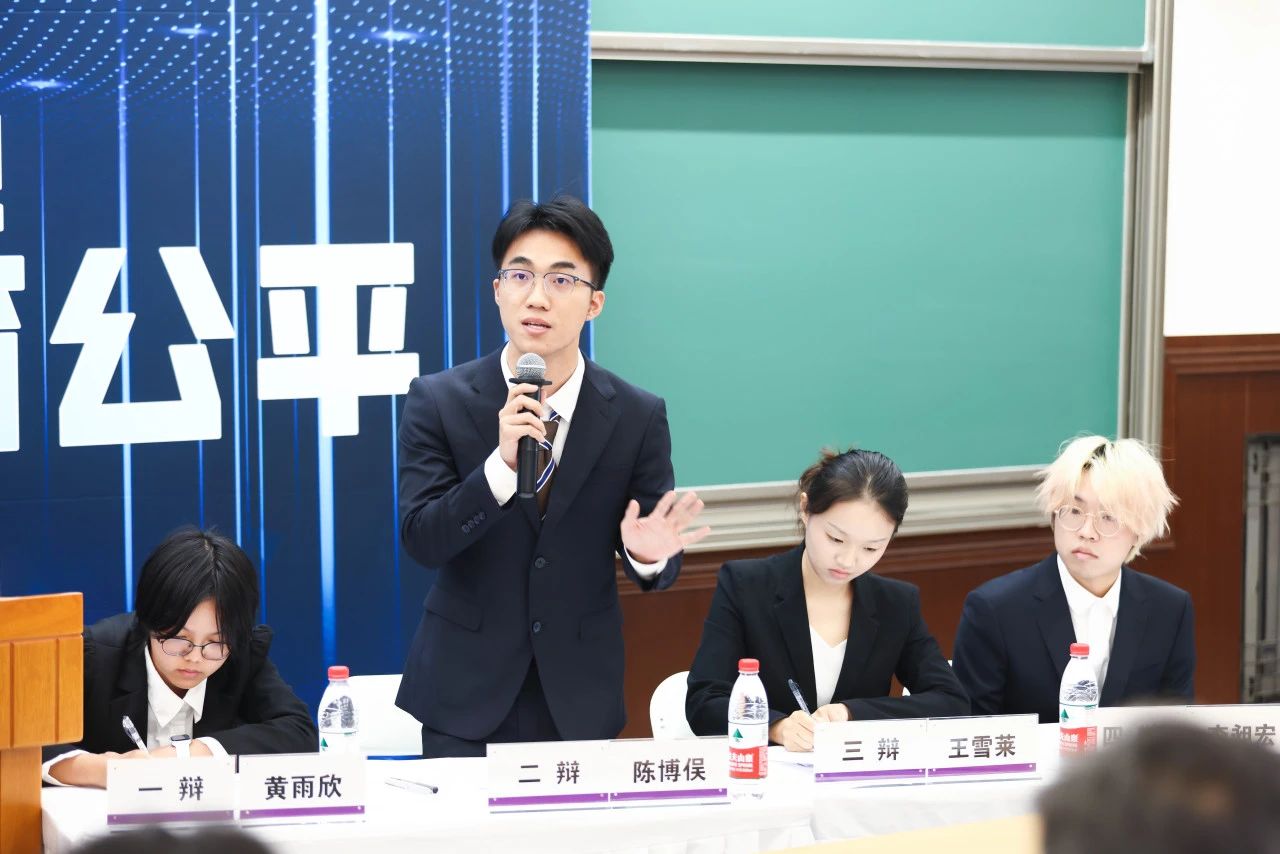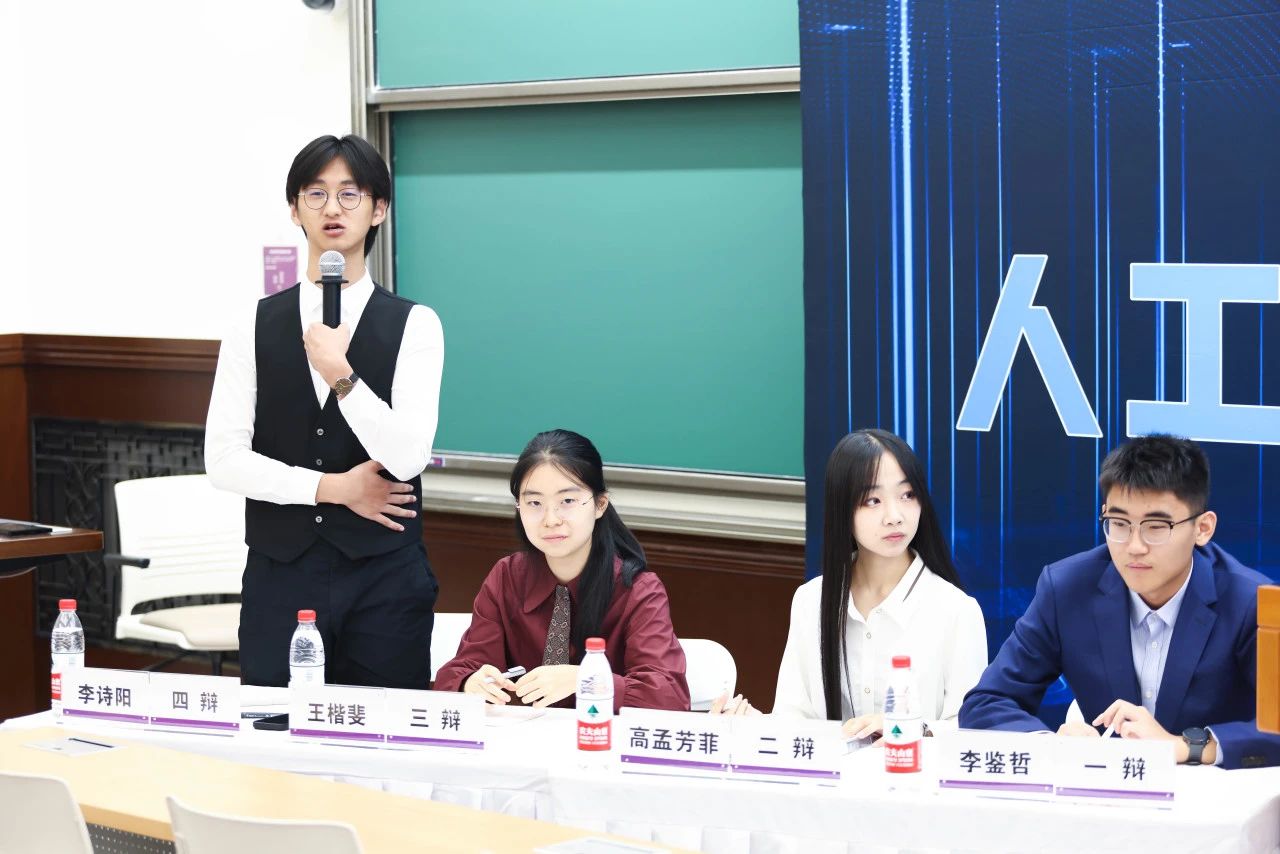On the afternoon of September 21, 2024, the first Forum on Learners in the AI Era: Artificial Intelligence and Educational Equity was held in Room 401 of the No. 2 Teaching Building at Tsinghua University.
The event was jointly initiated by the Xinya Debate Team of Tsinghua University and the Yuanpei Debate Team of Peking University and organized by the Student Union of Tsinghua University and the Xinya College of Tsinghua University. Liu Yi, Director of the Undergraduate Academic Affairs Office and Professor at the School of Environment, Tsinghua University; Professor Liu Yunshan, Vice Dean of the Graduate School of Education, Peking University; Wang Shuaiguo, Director of the Online Education Center, Tsinghua University; Associate Professor Shang Junjie, tenured faculty at the Graduate School of Education, Peking University; Associate Professor Yu Chun, tenured faculty at the Department of Computer Science and Technology, Tsinghua University; and Zhang Weite, Vice Dean of Xinya College, Tsinghua University, participated in the event. Other participants included Zhong Tianyu, President of the Student Union of Tsinghua University; members of the debate teams from Tsinghua University and Peking University; and guests and students from Tsinghua University, Peking University, and other universities in Beijing. Approximately 100 people attended in person, while about 16,000 joined the event online.
The debate topic for this event was "Does the widespread application of artificial intelligence exacerbate educational inequality?" The debate was chaired by Li Tong, a student from Xinya College, Tsinghua University. The proposition team consisted of four students from Peking University: Li Shiyang, Wang Kaifei, Li Jianzhe, and Gao Mengfangfei. The opposition team was represented by four students from Tsinghua University: Wang Xuelai, Chen Boyu, Li Changhong, and Huang Yuxin.


The two teams engaged in a brilliant debate on the impact of artificial intelligence on educational inequality. The proposition team began by defining educational inequality, highlighting the current imbalance in educational resources. They argued that artificial intelligence is not constrained by geographical or economic conditions and thus plays a significant role in promoting educational equity. On the other hand, the opposition team countered by pointing out that in the initial stages of AI application, the first to benefit will undoubtedly be children in resource-rich urban areas, further widening the gap for economically disadvantaged regions. Additionally, the opposition argued that the high threshold for using artificial intelligence and the high demands it places on users' literacy further exacerbate educational inequality.
Both teams demonstrated exceptional debating skills, greatly deepening our understanding of the issues surrounding AI and education.
After the exciting debate concluded, the guests provided professional and detailed commentary on the event and the related topics.

Professor Liu reminded us that during periods of rapid development, it is particularly important to reflect on whether we are moving in the right direction. The use of AI technology might "bully" people-oriented education, making it difficult to achieve truly inclusive and personalized teaching, thereby leading to a "winner-takes-all" phenomenon of inequality in the education process.
Furthermore, Professor Liu raised two crucial points for further discussion. The first point concerns our definition of "good education." While enriching educational information and resources and fostering strong teacher-student relationships are likely to benefit education, it is worth contemplating which has a greater impact—human influence or the influence of information. Professor Liu believes that the irreplaceable core of education lies in its role in shaping people, and that the genuine relationship between teachers and students may far surpass the convenience brought by artificial intelligence in providing information. The second point addresses the educational inequality caused by the disparity in urban and rural resources. While the convenience of artificial intelligence may enable educational resources to overcome the developmental gaps between urban and rural areas and help reduce inequality, how to truly achieve this remains an urgent issue that requires further discussion.
Mr. Wang pointed out that when discussing the significance of artificial intelligence in education, we should not only focus on whether AI resource supply is insufficient but also consider whether the supply of AI has already started to become excessive. If we cannot clearly understand the development of artificial intelligence at present, we can look back at the impact of books and online courses on educational equity. It becomes evident that when resources are ultimately oversupplied, the determining factor for whether a person learns or receives a good education is no longer the frequently discussed urban-rural divide.
AI, while pointing toward diversity and endless possibilities, also brings about homogenization and standardization. Topics related to AI always seem to be governed by a dual-sided "dialectic": while it points toward diversity and endless possibilities, it often simultaneously threatens homogenization and uniformity. The relationship between humans and technology, as an age-old theme, will never have a definitive conclusion. However, we must dispel the hesitation brought about by "distant observation" and "idle speculation," and instead explore the true value of AI through practice, using it to catalyze a transformative shift in educational equity.
The first Forum on Learners in the AI Era: Artificial Intelligence and Educational Equity has successfully concluded, but the discussion on this topic is far from over. We look forward to more scholars, practitioners, and learners joining the discussion and continuing to focus on the impact of artificial intelligence on education, striving to achieve educational equity.